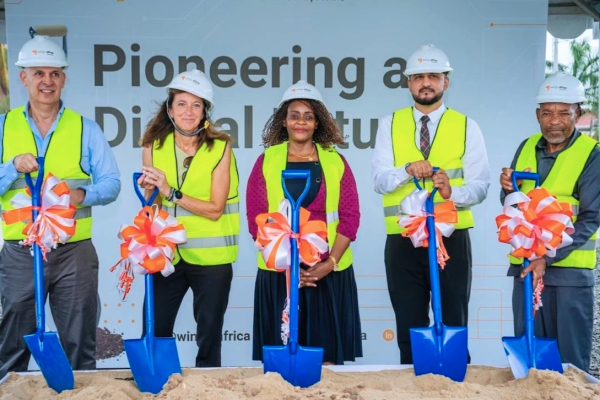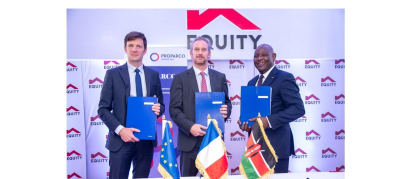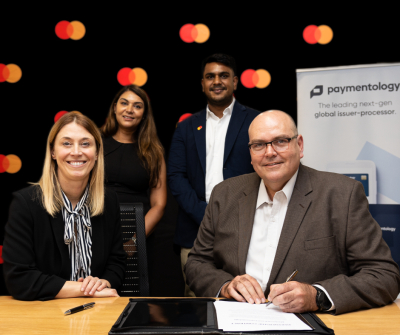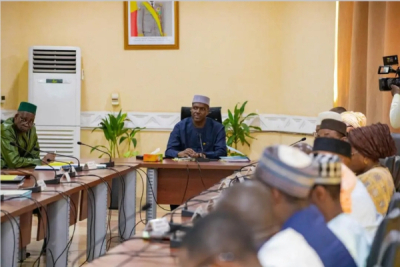- This marks the second phase of its data center expansion
- The first phase was completed in 2022 with the construction of a Tier 3 data center
Pan-African data center operator Wingu Group announced the second phase of its Dar es Salaam data center expansion on Tuesday, March 18, aiming to better serve its clients' evolving needs.
Wingu's existing Tanzanian data center, certified Tier 3 by the Uptime Institute, ensures uninterrupted maintenance through redundant equipment and circuits. Its power supply and cooling systems utilize multiple redundant paths, limiting downtime to 1.6 hours annually. The facility is carrier-neutral, accommodating all providers.
"Among the key enhancements is doubling in rack power to support energy-intensive applications with superior efficiency. The facility now offers considerably more white space to accommodate additional racks, pods, and cages, ensuring that it can readily grow to meet the increasing demands of modern digital operations," the company stated in a press release.
This expansion seeks to solidify Wingu's position in a rapidly expanding market, fueled by Tanzania's ongoing digital transformation. According to Statista, Tanzania's data center market is projected to generate $108.97 million in revenue by 2025, with an anticipated average annual growth rate of 7.54%, reaching $145.74 million by 2029.
However, Wingu faces competition in Tanzania's data center market. Raxio Group is currently constructing a carrier-neutral Tier 3 data center in Dar es Salaam. Additionally, IT services provider Oman Data Park has signed a memorandum of understanding to build a data center in Zanzibar.
By Isaac K. Kassouwi,
Editing by Sèna D. B. de Sodji
Africa-focused private equity firm Alterra Capital Partners secured, on March 17, a $20 million investment from British International Investment (BII) for its Alterra Africa Accelerator Fund (AAA Fund). The fund, targeting $400 million, supports businesses driving financial inclusion, digital growth, and job creation in East and Southern Africa.
The AAA Fund, which closed its first round at $140 million, is backed by IFC, Norfund AS, DEG, Standard Bank, Allianz AfricaGrow Fund, and Public Investment Corporation.
With BII’s backing, Alterra aims to accelerate sustainable growth across the continent.
Africa has the world’s youngest population, yet a major skills gap threatens growth. Providing digital education ensures economic opportunities for this rapidly growing workforce. By providingscholarships, this initiative directly contributes to closing the skills gap, fostering job creation, and accelerating Africa’s digital transformation.
AltSchool Africa, a talent company that equips Africans with the knowledge, skills, and resources, announced on March 18 that it has partnered with Bybit, a global cryptocurrency and blockchain leader, to sponsor 1,000 scholarships for young Africans, equipping them with in-demand digital skills.
Adewale Yusuf, CEO of AltSchool Africa, stated: “This sponsorship goes beyond a traditional scholarship program. It represents a shared vision for a future where young Africans are not only tech-savvy but also empowered to lead their communities into a prosperous digital age.”
Through this initiative, scholars will enroll in AltSchool Africa’s Diploma program, covering software engineering, data analysis, and product management. The program also includes mentorship, career counseling, and hands-on projects to prepare students for the global tech industry.
Bybit COO Helen Liu emphasized: “Education is key to progress. Through our partnership and the Bybit Academy, we’re committed to fostering innovation and future-proofing Africa’s talent.”
This partnership addresses Africa’s growing digital skills gap, a critical challenge as the continent faces an increasing demand for tech talent. According to the International Finance Corporation (IFC), Africa will need 230 million digital jobs by 2030, yet a significant skills shortage threatens economic growth. By providing 1,000 scholarships, AltSchool Africa and Bybit are helping bridge this gap, equipping young Africans with in-demand skills to thrive in the digital economy and drive innovation across the continent.
Hikmatu Bilali
Proparco and Equity Group, a Kenya based not-for-profit foundation, have signed a €1 million agreement to support the Climate Resilient Agri-Food Systems (CRAFS) project, an Equity Group Foundation (EGF) initiative helping Kenyan smallholder farmers adopt sustainable practices.
The signing took place in Nairobi, on March 18, attended by French Ambassador H.E. Arnaud Suquet, Proparco’s East Africa Director Jean Guyonnet-Dupérat, and Equity Group CEO Dr. James Mwangi.
CRAFS will train 15,000 farmers annually in climate-smart agriculture, covering energy use, sustainable farming, waste-to-energy, and water management. A field team and industry partners will support implementation.
Mastercard announced on March 17 that it is strengthening its partnership with Paymentology, a company that helps banks and fintechs create, manage, and process card payments, to simplify card issuance for South African fintechs.
This collaboration provides the expertise, infrastructure, and speed needed to scale payment solutions, driving financial inclusion and digital growth.
Mastercard offers global payments infrastructure and security, while Paymentology provides cloud-based processing and program management. Their combined expertise ensures faster, more efficient card issuance.
The Malian government is prioritizing digital technology to boost national economic growth. A core component of this strategy is the digitization of public services.
Malian Prime Minister Abdoulaye Maïga launched two digital platforms designed to enhance public service delivery to citizens on Tuesday, March 18. The platforms, "Trésor Pay" and the Land Information System/One-Stop Land Office (SIF/GUF), mark a step in Mali's digitalization efforts.
"Trésor Pay," a collaboration with all Malian mobile money operators, streamlines and secures payments for services including national identity card and passport fees, traffic violations, and fixed fines. Developed by the Support Unit for the Computerization of Tax and Financial Services (CAISFF) with the National Directorate of Treasury and Public Accounting, the platform is already operational at the Directorate General of Transport and the City Hall of Commune IV.
The SIF/GUF platform modernizes land and property procedures, enabling users to complete all land management operations in a single location. The system is slated for implementation across Bamako's seven districts within the year, aligning with the Government Action Program (PAG) objectives.
These platform launches reflect the Malian government's dedication to digitizing administrative services and improving citizen access to public procedures. This initiative follows the recent launch of a digital platform simplifying access to administrative, identity, and travel documents for the Malian diaspora.
Mali has risen 13 places to 141st out of 193 countries in the 2024 United Nations e-Government Development Index (EGDI). However, challenges persist in enhancing the accessibility and efficiency of digital services. The government’s recent initiatives are expected to further improve Mali's EGDI ranking, optimize public revenue collection, and strengthen governance in the coming years.
Samira Njoya
As digital technology rapidly expands in Africa, data sovereignty is increasingly becoming a business imperative. Across the continent, innovative initiatives are emerging, offering localized solutions to ensure regulatory compliance and safeguard sensitive data.
A new cloud platform, 'Door,' developed by Cloudoor in collaboration with Groupement Orange Services (GOS), is set to launch in West Africa, offering a locally developed alternative to existing foreign cloud infrastructure. The platform aims to address data security and regulatory compliance concerns within the region.
"This initiative marks a decisive step toward strengthened digital sovereignty for African businesses. With this sovereign cloud offering, we are providing local economic players with the necessary tools to innovate, grow, and compete globally while maintaining full control over their data," said Aliou Ba, CEO of Cloudoor.
The innovation arrives as data protection becomes a strategic priority for African businesses and governments. PricewaterhouseCoopers' (PwC) "Africa Cloud Business Survey 2023 – Unlocking the Transformational Power of Cloud in Africa" identifies obstacles to cloud adoption, including budget constraints and a lack of high-quality local providers. Despite these challenges, over 50% of African businesses have adopted cloud computing, according to the study.
Cloudoor and GOS designed Door to address these challenges by making data storage more affordable and accessible. The platform utilizes the Tiers III data center infrastructure of GOS, a key component of Orange's African data center network. This data center, built in Grand-Bassam, Côte d'Ivoire, in 2016, spans 16,600 square meters. Door will officially launch in Abidjan on April 24 and in Dakar on April 29, marking a milestone in strengthening digital sovereignty in Africa.
In addition to secure data hosting, Door offers services aimed at accelerating innovation and modernizing African businesses' information systems. The platform includes a managed DevOps offering to optimize development processes and reduce time-to-market, enabling companies to address technological challenges. Door Deploy, a complementary solution, simplifies the deployment of applications, databases, and artificial intelligence (AI) models on GPU servers.
By Samira Njoya,
Editing by Sèna D. B. de Sodji
Digital transformation is one of the priorities of the Ghanaian authorities, who are relying on international cooperation to achieve their goals.
Ghana and Germany discussed strengthening their collaboration in the digital sector during a meeting between Minister of Communication, Digital Technologies, and Innovation, Samuel Nartey George, and a German delegation on March 17.
The talks centered on promoting research and development in digital technologies, supporting information and communication technology (ICT) startups and entrepreneurs in Ghana, and accelerating the adoption of digital solutions.
This collaboration aligns with Ghana's ongoing digital transformation efforts. In late November 2024, the government launched a digital economy policy to leverage technology for growth, improve public services, and ensure equitable access. In October, a $5 million fund was announced to support technological innovation.
Ghana scored 0.6316 on the 2024 E-Government Development Index, ranking 108th out of 193 countries. The country surpasses West African and African averages but remains below the global average. Further efforts are needed in human capital development and online services, where Ghana scored 0.5586 and 0.6084, respectively.
In cybersecurity, Ghana is considered a global model by the International Telecommunication Union (ITU) in its "Global Cybersecurity Index 2024," though further capacity building is needed.
Germany, a global leader in digital transformation, ranked 12th, scored 0.9382 on the E-Government Development Index, well above the global average of 0.6382. On the ICT Development Index, Germany scored 87.8 out of 100.
A joint study by the International Finance Corporation (IFC) and Google predicts Africa's digital economy will be worth $712 billion by 2050, accounting for 8.5% of the continent's GDP. In 2022, Ghana's ICT sector contributed 21 billion cedis ($1.36 billion) to GDP, representing approximately 4% of the economy, up from 4.4 billion cedis in 2016.
By Isaac K. Kassouwi,
Editing by Sèna D. B. de Sodji
Orange, a leading telecommunications provider in Madagascar, is expanding its efforts to enhance user experience. The company is launching a new strategic application within the mobile money sector.
Orange Madagascar introduced Orange Money Pro, a mobile application for merchants and distributors, on Tuesday, March 18, aiming to streamline financial transaction management and enhance the mobile money experience for professionals.
The new application offers faster transaction processing and features tailored to merchants' needs, including real-time transaction tracking, payment management, and improved financial flow visibility.
For distributors, Orange Money Pro simplifies point-of-sale management, banking connections, and access to customer support. Merchants can utilize QR code payments and generate remote payment links. The application, currently available exclusively on Android, has been downloaded more than 10,000 times, according to Google Play Store statistics.
Amidst the growing digitization of payments in Africa and the rise of mobile money, Orange seeks to bolster financial inclusion and simplify business operations. With Orange Money Pro, the French operator is strengthening its position in Madagascar's mobile money sector and may eventually offer advanced financial services to businesses, such as credit solutions or integrated accounting management. Depending on the app's success in Madagascar, expansion to other markets could follow.
However, adoption may be hindered by factors such as internet access rates, which stood at 32.57% in 2023 according to the regulator, merchants' digital literacy, and compatibility with other financial services. These are challenges that Malagasy authorities are working to address.
By Adoni Conrad Quenum,
Editing by Feriol Bewa
Over the past four years, Cameroon, Gabon, Chad, the Central African Republic, Congo, and Equatorial Guinea have collaborated on a project designed to enable seamless communication for their citizens traveling within the region, eliminating the need to change SIM cards. This initiative seeks to foster greater sub-regional integration.
Central African citizens could soon communicate freely across borders without incurring extra charges, as regional telecommunications ministers have issued a three-month deadline to finalize a free roaming project.
The decision followed a meeting of Telecommunications Ministers of the Central African Economic and Monetary Community (CEMAC) held last week in Bangui, Central African Republic. During the meeting, participants discussed obstacles hindering the initiative, which seeks to eliminate disparities in roaming costs that lead to expensive communications and impede the telecommunications sector's development.
In November 2021, CEMAC countries signed bilateral agreements to implement free roaming. However, the project has faced substantial delays. In April 2024, the Assembly of Telecommunications Regulators of Central Africa (ARTAC) reported that only two of the 213 planned interconnections had been established. These connections involved MTN Cameroon and MTN Congo, and Airtel Gabon and Orange Cameroon.
While the specific obstacles to free roaming were not disclosed, ARTAC's objectives for a 2024 seminar aimed at accelerating the process shed light on potential issues. These include delays in finalizing minutes, including tariff agreements between regulators, late signing of interconnection and roaming contracts, potential technical and legal difficulties for the involved parties, issues related to the separation of roaming and traditional international traffic on direct interconnection links, and the selection of technology for those links.
By Isaac K. Kassouwi,
Editing by Sèna D. B. de Sodji
More...
Africa's digital sector faces a critical labor shortage, threatening the continent's development. Addressing this gap within the next five years is crucial for reducing youth unemployment and boosting economic growth.
Africa's rapid digital transformation, fueled by its tech-savvy youth and innovative local solutions, is creating a surge in demand for specific tech skills. While projections indicate Africa's internet economy could reach $712 billion by 2050, as Google and the IFC highlight, realizing this potential requires a highly skilled local workforce. However, a significant skills gap persists, posing a challenge as digital expertise becomes increasingly crucial across all sectors by 2030.
Software and Application Development
The rise of startups and digital platforms, coupled with businesses embracing digital technologies, is driving demand for developers in Africa. They are essential for building mobile applications, management software, and tailored solutions for industries like healthcare and finance. Google's 2022 "Africa Developer Ecosystem" report showed a 3.8% increase in professional developers, and the COVID-19 pandemic amplified this trend, creating significant opportunities.
Cybersecurity
Trust is fundamental to a digital economy, and that trust hinges on secure electronic systems for communication, payments, and work. Interpol's "African Cyberthreat Assessment Report 2024 Outlook" reveals a continuing rise in cybercrime across Africa. In 2023, organizations in Africa experienced a 23% year-over-year increase in weekly cyberattacks, the highest rate worldwide. Cybersecurity firm Kaspersky points out that this expanding threat landscape, further complicated by artificial intelligence, is creating growing job opportunities for young Africans in diverse cybersecurity specializations.
Artificial Intelligence
The increasing adoption of AI is transforming key sectors in Africa, including agriculture, healthcare, and finance, generating a growing demand for experts in algorithm and intelligent system design. Numerous African countries have launched AI strategies since 2023, with Rwanda and Kenya leading the way in integrating AI into public services. The rise in training programs across the continent reflects the anticipated socio-economic benefits of AI, a view supported by the African Development Bank (AfDB). Importantly, AI's impact will extend beyond engineering, creating new opportunities in creative fields such as graphic design.
Data Science
Data is the new currency of the digital age. As more young Africans engage with the internet, networks, and digital services, vast amounts of data are generated daily, attracting the attention of businesses and governments. BearingPoint forecasts Africa's big data sector to generate $10 billion in direct revenue by 2030, a significant leap from 2019. To achieve this growth, specialists are needed to analyze and interpret data, providing actionable insights for various sectors, including marketing, commerce, and national security. This demand will also create new professional avenues, notably data protection lawyers.
User experience and user interface (UX/UI)
Digital applications and platforms thrive on positive user experience. UX/UI designers, who develop intuitive and engaging interfaces, are essential for ensuring user satisfaction. Market intelligence firm Mordor Intelligence forecasts the global UX/UI market to grow significantly, from $2.2 billion in 2025 to $9.28 billion by 2030. Although Africa's demand may be less pronounced than in other regions due to its evolving digital landscape, it remains a promising market for UX/UI designers.
E-commerce
Africa's e-commerce sector is experiencing rapid growth, with competition increasing annually. Both local businesses and international giants such as Jumia, Takealot, Temu, and Alibaba are investing heavily to expand their reach. Beyond online retail, related professions in platform management, logistics, and digital marketing are also developing. Organizations like MasterCard, the WTO, and UNCTAD are actively working to build and strengthen this ecosystem. TechCabal Insights predicts Africa's e-commerce market will surge from $55 billion in 2024 to $112.73 billion by 2029, representing a 105% increase over five years.
Blockchain and fintech
Blockchain and financial technologies are revolutionizing banking services and transaction security. Since the COVID-19 pandemic, major African banks have accelerated the digitization of their financial services to improve security, convenience, and competitiveness against the growing number of fintech startups. Over the past decade, fintech has been a leading driver of startup creation and investment in Africa. In 2024 alone, fintech startups secured $1.034 billion, representing 47% of the continent's total tech investment, up from 42% in 2023. As financial inclusion initiatives expand, the demand for skilled professionals in this sector is expected to increase significantly.
Cloud computing
Cloud computing adoption is rapidly accelerating across Africa, according to McKinsey. Companies in banking, telecommunications, and oil are increasingly leveraging the cloud to optimize IT costs and reduce operational expenses. This trend has fueled substantial investments in cloud infrastructure, with global players like Amazon, Google, and Oracle expanding alongside local firms such as Africa Data Centres. PwC reports that 12% of African businesses have fully migrated to the cloud, while 38% have integrated it into most operations. An additional 32% have begun migrating select processes, and 19% are exploring cloud solutions. However, PwC cautions that skills shortages are hindering faster adoption. The cloud computing sector requires a diverse workforce to realize its projected growth, with 6W Research forecasting revenues to rise from $20 billion in 2025 to nearly $45 billion by 2031.
Digital Marketing
With Africa boasting over 400 million active social media users, as reported in the Digital Report 2025, the demand for digital marketing professionals is set to rise significantly. These specialists are crucial for effective online campaigns, making social media a vital commercial space for brands and advertising agencies. Recognizing the sector's growth in employment and revenue, some governments are exploring taxation measures. For instance, in late 2023, Kenyan authorities announced a 15% tax on content creators and influencers.
Digital Energy and Green Solutions
The shift towards renewable energy and digital energy management solutions is a key priority for many development organizations, including the French Development Agency (AFD). The increasing frequency of hackathons focused on these topics underscores the growing need for specialized talent in this area. The International Energy Agency (IEA) also emphasizes the critical role of these technologies in modernizing energy infrastructure worldwide, particularly in Africa.
These emerging digital fields represent significant opportunities for Africa's youth, who constitute 60% of the population. The World Economic Forum's "Future of Jobs 2025" report underscores the growing importance of tech skills, particularly in AI and big data, alongside creative thinking and socio-emotional skills.
To capitalize on these opportunities, investment in education and training is essential. Collaboration between governments, businesses, and educational institutions is crucial to prepare Africa's future workforce.
Muriel EDJO
The startup aims to drive financial inclusion in Egypt by offering user-friendly and secure digital payment solutions. Their platform streamlines transactions for millions, accelerating the country's shift towards a digital economy.
Basata Pay is an Egyptian e-payment gateway that links service providers, merchants, and consumers across the country.
Founded in 2009 through the merger of Bee and Masary, the Cairo-based company is now led by Chief Executive Officer Karim Shehata, who took the helm in 2022.
"Basata offers a secure and user-friendly financial payment system, integrating fintech solutions to connect service providers, merchants, and consumers. This innovative platform serves over 40 million users in Egypt, leveraging a network of 150,000 points of sale nationwide," the platform indicates on its website.
Through Basata Pay, users can conveniently pay phone bills, renew internet subscriptions, and settle payments for a range of public and private services, including electricity, water, school fees, transportation, and online gaming.
Spanning all 27 of Egypt's governorates, the service's extensive network of over 150,000 points of sale enables users to easily top up their e-wallets and make payments. Recharge options include Mastercard, Visa, and Meeza.
The company also offers a mobile application, available on iOS, AppGallery (Huawei), and Android, which has been downloaded more than 10,000 times on the Google Play Store, according to the platform. Users can access Basata Pay's services by creating a simple account.
By Adoni Conrad Quenum,
Editing by Feriol Bewa
Artificial intelligence (AI) is reshaping economies and societies, transforming public services, industry, and innovation, among other sectors. By investing in this technology, Morocco aims to strengthen its competitiveness and digital sovereignty.
Moroccan and U.S. officials discussed deepening collaboration in digital technology and artificial intelligence (AI) during meetings in Washington on Monday, March 17, as part of efforts to accelerate Morocco's tech ambitions.
Amal El Fallah Seghrouchni, Morocco's Minister Delegate for Digital Transition and Administrative Reform, met with Steve Lang, the U.S. Ambassador-at-Large for Cyberspace and Digital Policy, and Leila Elmergawi, Director of Global AI Strategy and Policy at the U.S. State Department. The discussions focused on Morocco’s AI roadmap and the Morocco Digital Plan 2030, reinforcing a shared commitment to digital innovation.
"We reaffirmed the strong Morocco-US partnership, advancing cooperation in digital transformation and artificial intelligence to foster innovation and shared prosperity for both our nations," said Youssef Amrani, Morocco’s Ambassador to the United States.
This strategic alliance supports Morocco's "Digital Morocco 2030" initiative, designed to establish the nation as a premier African technology hub. AI is pivotal in this vision, particularly for modernizing public services. Morocco intends to deploy AI-driven solutions to automate administrative processes, analyze data, and enhance service delivery, aiming to leap from 90th to 50th place in the United Nations Online Services Index by 2030.
The United States, according to the Stanford Institute for Human-Centered AI (HAI) AI Index, stands as the global leader in AI, excelling in research, development, and economic impact. Notably, U.S. private sector AI investment ($67.2 billion) dwarfs China's ($7.8 billion), and the U.S. produces significantly more machine learning models (61 vs. 15).
Morocco's strategy leverages this U.S. expertise to expedite its digital transformation and boost its international competitiveness. Enhanced cooperation could unlock access to cutting-edge technologies, bolster digital infrastructure, and attract crucial AI-sector investments. Through strategic knowledge transfer, Morocco also seeks to cultivate its research and innovation capabilities, nurturing a dynamic and competitive domestic AI ecosystem.
By Samira Njoya,
Editing by Sèna D. B. de Sodji
To bridge Africa's digital divide, investment in infrastructure and connectivity is crucial, offering an opportunity to enhance economic inclusion in remote regions.
The Democratic Republic of Congo (DRC) secured $500 million to improve internet access for 30 million citizens, addressing structural challenges in its digital sector.
The project, co-financed by the French Development Agency (AFD) and the World Bank, aims to expand connectivity nationwide and make internet access more affordable by reducing costs and improving network coverage, particularly in underserved areas.
The agreement was signed on Friday, March 14, by DRC Finance Minister Doudou Fwamba Likunde Li-Botayi and French Ambassador to the DRC Rémi Maréchaux.
The DRC's digital sector faces challenges including uneven network coverage, limited internet access, and inadequate infrastructure, hindering economic development and digital inclusion. As of June 30, 2024, the DRC had 59.7 million mobile phone subscribers and 30.7 million mobile internet subscribers out of an estimated population of 95.2 million, according to official figures.
According to the GSM Association (GSMA), 40 million Congolese lack mobile internet access. Meanwhile, the International Telecommunication Union (ITU) reports 3G coverage reaches 55% of the population, while 2G coverage stands at 45%.
Part of the $500 million funding will be allocated to modernize Boma, a city heavily impacted by an economic crisis due to a slowdown in port activities.
The agreement is part of broader efforts to modernize the digital sector and democratize technology access. By strengthening digital infrastructure, the initiative aims to address accessibility and connectivity challenges, paving the way for new economic and social opportunities.
By Samira Njoya,
Editing by Sèna D. B. de Sodji















